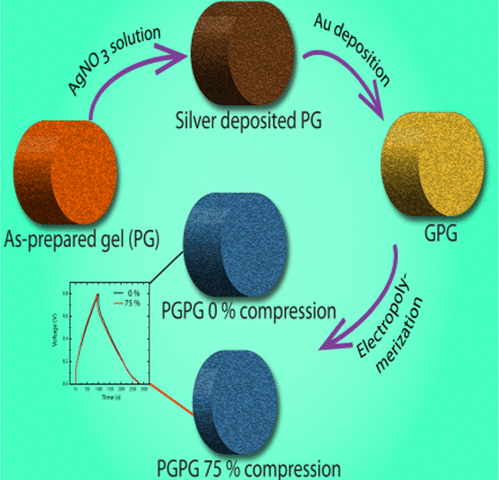 Powering soft wearable electronics with a long-lasting source of energy remains a big challenge. Supercapacitors could potentially fill this role—they meet the power requirements, and can rapidly charge and discharge many times. But most supercapacitors are rigid, and the compressible supercapacitors developed so far have run into roadblocks. They have been made with carbon-coated polymer sponges, but the coating material tends to bunch up and compromise performance. Guruswamy Kumaraswamy, Kothandam Krishnamoorthy and colleagues wanted to take a different approach.
Powering soft wearable electronics with a long-lasting source of energy remains a big challenge. Supercapacitors could potentially fill this role—they meet the power requirements, and can rapidly charge and discharge many times. But most supercapacitors are rigid, and the compressible supercapacitors developed so far have run into roadblocks. They have been made with carbon-coated polymer sponges, but the coating material tends to bunch up and compromise performance. Guruswamy Kumaraswamy, Kothandam Krishnamoorthy and colleagues wanted to take a different approach.
The researchers prepared polymer gels in green tea extract, which infuses the gel with polyphenols. The polyphenols converted a silver nitrate solution into a uniform coating of silver nanoparticles. Thin layers of conducting gold and poly(3,4-ethylenedioxythiophene) were then applied. And the resulting supercapacitor demonstrated power and energy densities of 2,715 watts per kilogram and 22 watt-hours per kilogram—enough to operate a heart rate monitor, LEDs or a Bluetooth module. The researchers tested the device’s durability and found that it performed well even after being compressed more than 100 times.






